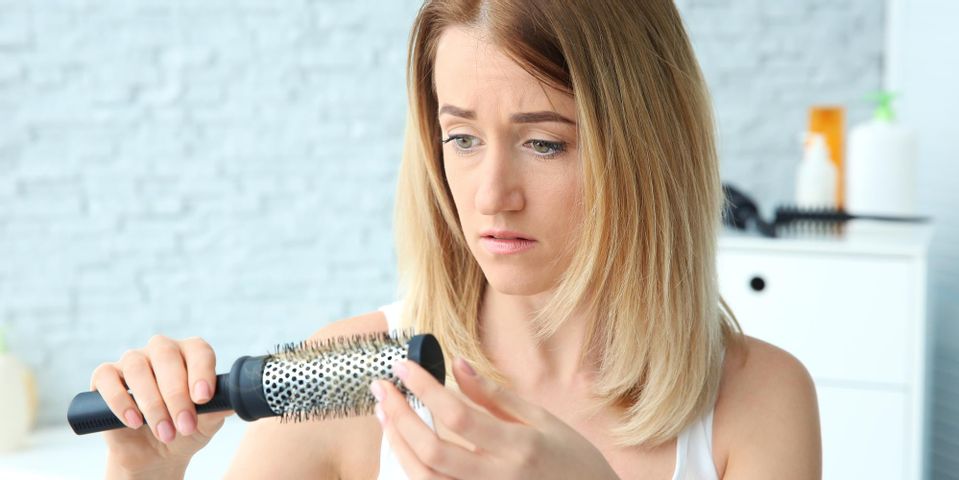
From prolonged sadness to chronic fatigue, clinical depression is a mental health condition that can greatly affect a person’s mood. However, it can also have a major impact on the physical body, such as by disrupting sleep and contributing to weight gain. While these effects are well-known, many overlook the possibility that depression can contribute to hair loss. If you’re concerned about balding or have been diagnosed with depression, here’s what you should know.
How Might Depression Cause Hair Loss?
Increased Stress
When clinical depression isn’t managed properly, individuals tend to experience frequent and extended episodes of stress. This stress is believed to play a role in alopecia areata—an auto-immune response in which follicle cells are attacked.
As a result, patches of hair may come off the scalp, leaving behind circular bald areas. While this issue is normally temporary, its effects may last 12 months or longer.
Antidepressant Use
Typically, a healthy scalp primarily consists of hair in the anagen (or growth) phase, while a fraction remains in the telogen (or resting) phase. However, a physical response, known as telogen effluvium, causes a disproportionate amount of hair to enter the resting phase. This slowed growth can increase the appearance of balding for prolonged periods.
There are many depression-related causes of telogen effluvium, including physical trauma and psychological stress. However, if you’re managing the condition, you may still experience decreased hair growth as a result of taking certain antidepressants, such as fluoxetine.
How Can You Cope With Depression-Related Hair Loss?
Embrace Therapy
 If you have a mild case of clinical depression, talk therapy from a qualified professional can help. By allowing you to explore potential causes of the disorder and develop healthy coping mechanisms, therapy may help you lower your stress levels and the effects on hair growth.
If you have a mild case of clinical depression, talk therapy from a qualified professional can help. By allowing you to explore potential causes of the disorder and develop healthy coping mechanisms, therapy may help you lower your stress levels and the effects on hair growth.
Adjust Medications
Before you take any mental health medication, talk about the possible side effects with your prescribing doctor. If hair loss is a potential risk, you may prefer asking your doctor for an alternative treatment that’s not associated with telogen effluvium.
Explore Restorative Solutions
When your depression treatment can’t be adjusted to avoid balding, there are several solutions out there to promote a healthier scalp. For example, laser therapy can trigger hair growth, whereas specially-prepared topical solutions can thicken thinning strands.
Whether your hair loss is due to depression, aging, or other health concerns, New-U in Rochester, NY, has the resources to promote healthy growth. When you visit this clinic, a friendly and qualified specialist will assess your scalp and overall health to determine potential sources of thinning or baldness. From there, they’ll introduce you to a wide range of effective hair restoration treatments, including non-surgical laser therapy and topical thickening products. Visit this hair replacement center online to learn more about their services, or call (585) 272-7320 to schedule a complimentary and convenient consultation.
About the Business
Have a question? Ask the experts!
Send your question

